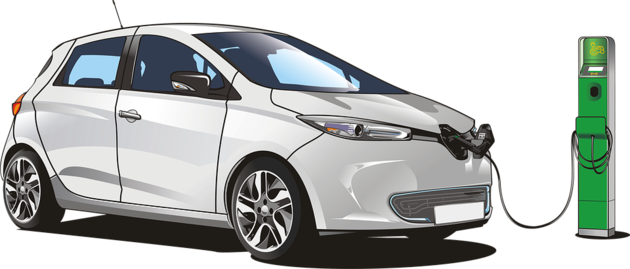Electric vehicles (EVs) are a strong weapon in the world's efforts against global warming. But the effects of EVs depend on what country you are in. In some nations, electric vehicles lead to the release of more carbon gasses than gasoline cars, new research shows, Reuters reports.
The Radiant Energy Group (REG) compared gas emissions caused by a gasoline vehicle and from charging an electric vehicle. The study compared the emissions caused by charging a Tesla Model 3 to drive 100 kilometers with the emissions coming from an average gasoline car driven the same distance. Countries where charging an electric vehicle is cleaner than driving a gasoline-powered car use a lot of hydroelectric, nuclear or solar power.
Sales of electric cars are rising the fastest in Europe. Data from REG suggests that EVs in Poland and Kosovo actually create more carbon emissions because their electric systems depend so much on coal. In other European countries, however, EVs result in reduced emissions. The carbon gas reduction depends on what energy supplies electricity systems and the time of day vehicles are charged.
The countries with the biggest carbon gas savings from EVs use a lot of nuclear and hydroelectric power. First was Switzerland at 100 percent carbon savings over gasoline vehicles. Next was Norway at 98 percent, France at 96 percent, Sweden at 95 percent and Austria 93 percent. The research was based on public data on Europe’s electricity usage and the European Environment Agency (EEA).
The countries which showed the lowest savings were Cyprus at four percent, Serbia 15 percent, Estonia 35 percent and the Netherlands 37 percent. An EV driver in Germany reduces greenhouse gas emissions by 55 percent over a gasoline car. Germany uses a mix of renewable energy and coal to produce electricity. Germany and Spain create a lot of electricity from the sun and wind. But the sun and wind do not add to a country’s electricity system equally throughout the day.
For this reason, the amount of carbon emissions saved by driving an EV depends on the time of day it is being charged. Charging in the afternoon, when there is more sun and wind, saves 16 to 18 percent more carbon than at night when electricity systems are more likely to be using gas or coal. The study was released just before talks on transportation at the United Nations' climate meeting in Glasgow. During the meeting, a group of countries, companies and cities promised to stop making gas-powered cars by 2040.
But the study showed how the auto industry's ability to reduce emissions depends on what national power systems use to produce electricity. European countries have not solved how to reduce carbon emissions and how to store some kinds of renewable energy in their systems.
The gap in emissions between electric and gasoline-powered vehicles has narrowed in recent years. In Europe, carmakers have been required to meet EU carbon reduction standards. They have made their gasoline engines more fuel-efficient. As a result, the carbon emissions of new gasoline-powered cars in Europe fell an average of 25 percent between 2006 and 2016, EEA information says.
EV sales in Europe are supported by government spending and rules against new gasoline engine cars after 2035. About one in five cars sold in Europe from July to September of this year were electric.
Automakers including General Motors, Stellantis and Volkswagen have set targets to sell mainly electric vehicles in Europe in the coming years. U.S. car manufacturer General Motors said it will have all new electric cars by 2022.






